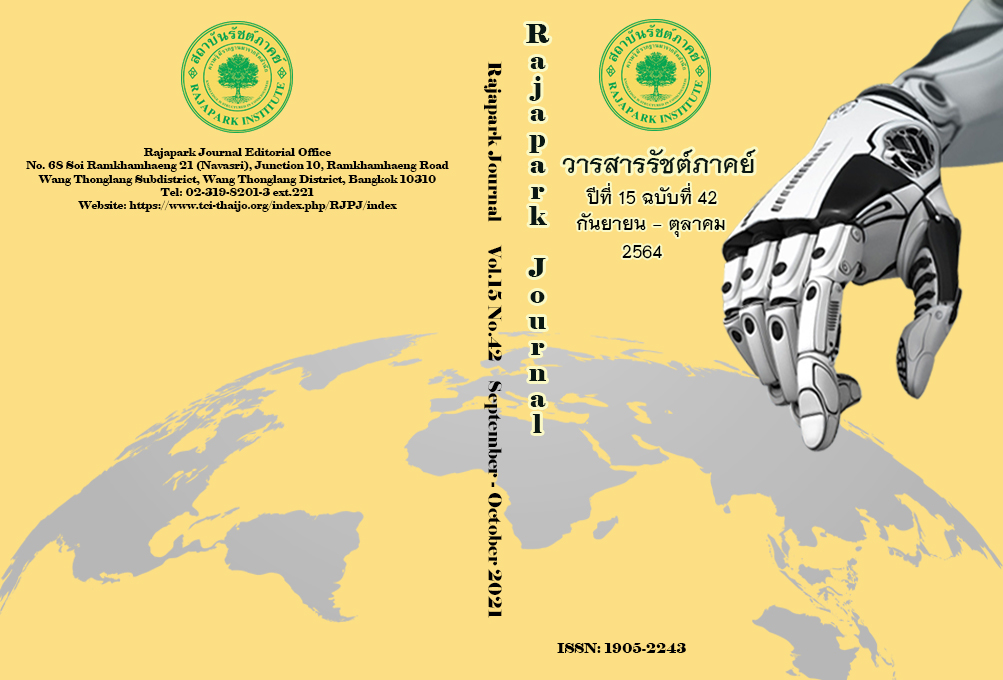Development of the Basic Education Home School Model in the 21st Century
Main Article Content
Abstract
This research aimed to study (1) the status and guidelines of the basic education home school model in the 21st century and (2) the development of the basic education home school model in the 21st century. 3) the feasibility and profitability assessment of the basic education home school the 21st century. This research is quantitative and qualitative. The research samples were 205 families that employed the homeschooling system from Stratified Random Sampling. The samples also included 5 home schools and 6 experts by Purposive Sampling Technique. The research instruments were a questionnaire and interview form. The statistical analysis included percentages, means, and standard deviation. This research also employed content analysis to analyze the data. The result showed that the context and guidelines of the basic education home school model in the 21st century were at a high level. There were 6 parts of the basic education home school model in the 21st century, including part 1 principles and objectives, part 2 inputs including supporting networks, curriculum, and educational resources, part 3 processes including preparation, planning, performing evaluation, and implementing, and part 4 output, which was the 9 competencies, part 5 outcomes, part 6 feedback, and part 7 environment. The evaluation result showed that the overall basic education home school model in the 21st century was possible and beneficial at the highest level.
Article Details
Views and opinions appearing in the Journal it is the responsibility of the author of the article, and does not constitute the view and responsibility of the editorial team.
References
Abdulloh, W., & Niemted, W. (2020). Arrangement of Learning Environment to Promote Learning Skills in the 21st Century “Concept Theory and Practice. Princess of Naradhiwas University Journal of Humanities and Social Sciences, 7(2), 227-246.
Chimchujai, C. (2002). Minutes of the Academic Conference. Management of Education by Family and School Registration. Bangkok: Office of the National Education Commission.
Charoenwongsak, K. (2012). Conducting a Home School and School System. Retrieved May 13, 2019, from https://www.homeschoolnetwork.org/blog/8
Engchun, R., Sungtong, E., & Haruthaithanasan, T. (2015). Home Schooling’s Learning Process Management: A Case Study of Families in the South. Hatyai Journal, 13(2), 103-116.
Fanchiang, N. (2020). Competency-Based Course for 21st Century Learner Development. Retrieved April 1, 2021, from https://www.trueplookpanya.com/blog/content/79321
Hoy, W. K., & Miskel, C. G. (1991). Educational Administration, Theory, Research and Practice. New York: McGraw-Hill.
Jarusombuti, S. (2014). Homeschooling Management by Career Education Concept(Doctor of Philosophy, Vocational Education). Kasetsart University.
Kaewmahawong, P. (2015). A Management Model of Home School for Persons with Special Needs. Suthipritat Journal, 29 (92), 236-253.
Keeves, J. P. (1988). Educational Research, Methodology and Measurement: An International Handbook. Oxford: Pergamon Press.
Krejcie, R. V., & Morgan, D. W. (1970). Determining Sample Size for Research Activities. Educational and Psychological Measurement, 30(3), 607-610.
Meesil, N. (2016). Reinforcing Life and Career Skills; An Effect Version of Homeschooling in The Twenty First Century(Doctor of Philosophy, Applied Behavioral Science Research). Srinakharinwirot University.
Office of the Education Council. (2004). Status of Thai Education. Bangkok: Pimdee.
Office of the Education Council. (2008). Evaluation for the Development of Home-school. Bangkok: Pimdee.
Office of the Non-Formal and Informal Education (2008). Documents, Principles and Concepts for the Implementation of the Non-Formal Education: Scriptures of the Non-Formal Education Commission. Retrieved January 2, 2019, from http://www.lertchaimaster.com/doc/k-ksn-02.pdf
Office of the Basic Education Management Development. (2019) Policy of the Office of the Basic Education Commission. Retrieved January 2, 2019, from http://www.mathayom9.go.th/webspm9/data/obec63.pdf
Rangseechatchawan, D., Chutinatphuwadon, C., & Teypinsai, N. (2018). A Study of Homeschool Educational Management Model and Government Agencies’ Involvement Consistent with Learners’ Needs(Research Report). Faculty of Humanities and Social Sciences, Chiang Mai Rajabhat University.
Srisa-ard, B. (2000). Preliminary Research. Bangkok: Suwiriyasarn.
Sueree, N. (2014). State and Problems of Muslim Homeschools in Thailand(Master of Education, Non-formal Education for Sustainable Development). Prince of Songkla University.
Yingyongdamrongrit., S. (2008). Learning Process Management of Home School Group According to The National Education Act B.E.2542(Doctor of Education, Department of Adult Education). Srinakharinwirot University.


